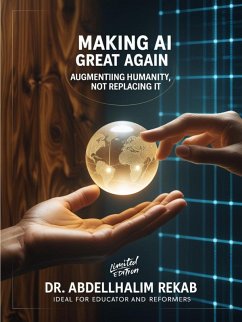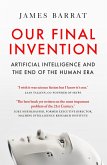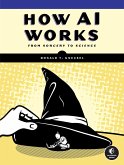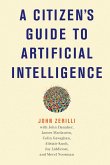Navigate the AI Revolution with Academic Rigor and Practical Wisdom
In an era where Artificial Intelligence shapes every aspect of human existence, from healthcare diagnostics to economic systems, a critical question emerges: How can we harness AI's unprecedented power while addressing the growing public concerns about its impact on society?
Making AI Great Again presents a scholarly examination of contemporary AI challenges and opportunities, offering evidence-based solutions for responsible technological advancement. This comprehensive academic work addresses the paradox at the heart of modern AI development-the simultaneous promise of revolutionary benefits and the legitimate fears of societal disruption.
What You'll Discover:
Foundational Understanding: Explore the core technologies driving today's AI revolution, from machine learning algorithms to large language models, with clear explanations grounded in current research.
Ethical Framework: Examine critical issues of algorithmic bias, privacy protection, and accountability through rigorous analysis of contemporary case studies and peer-reviewed research.
Human-Centric Design: Learn practical frameworks for developing AI systems that prioritize human flourishing and societal well-being over pure technological advancement.
Real-World Applications: Analyze inspiring case studies demonstrating AI's transformative potential in healthcare, education, environmental sustainability, and social justice.
Future Vision: Discover actionable strategies for creating an AI ecosystem that serves as a catalyst for positive global transformation.
Key Features:
- 9 Comprehensive Chapters covering the full spectrum of AI development and deployment
- Extensive Academic References supporting every major argument and claim
- Practical Implementation Strategies for researchers, policymakers, and industry professionals
- Evidence-Based Analysis of current public sentiment and technological trends
- Interdisciplinary Approach combining computer science, ethics, economics, and social policy
Who Should Read This Book:
- Graduate students and researchers in AI, computer science, and technology policy
- Industry professionals developing AI systems and applications
- Policymakers and regulatory officials shaping AI governance
- Ethics committees and review boards overseeing AI research
- Anyone seeking a serious, academic perspective on AI's role in society
Making AI Great Again challenges the notion that technological progress must come at the expense of human values. Through rigorous scholarship and practical wisdom, this book demonstrates that the path to truly beneficial AI lies not in unchecked advancement, but in thoughtful, ethical, and human-centered development.
Transform your understanding of AI's potential and join the movement toward responsible innovation that serves all of humanity.
About the Academic Approach: This book maintains scholarly standards throughout, peer-reviewed sources, and evidence-based conclusions. Each chapter builds upon established research while offering original insights for the future of AI development.
Dieser Download kann aus rechtlichen Gründen nur mit Rechnungsadresse in A, B, CY, CZ, D, DK, EW, E, FIN, F, GR, H, IRL, I, LT, L, LR, M, NL, PL, P, R, S, SLO, SK ausgeliefert werden.









